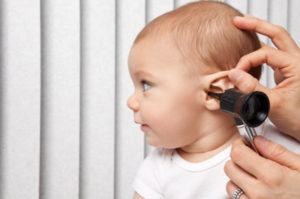 Ear tube surgery is one of the most common surgeries that children undergo in the United States. Approximately 667,000 children have this procedure done every year, for a variety of reasons. One of the most common reasons for performing ear tube surgery is frequent, recurring middle ear infections, resulting in hearing loss or other associated problems. Hearing tests can determine if your child has been impacted by frequent hearing loss.
Ear tube surgery is one of the most common surgeries that children undergo in the United States. Approximately 667,000 children have this procedure done every year, for a variety of reasons. One of the most common reasons for performing ear tube surgery is frequent, recurring middle ear infections, resulting in hearing loss or other associated problems. Hearing tests can determine if your child has been impacted by frequent hearing loss.
Even though ear infections are usually treated fairly easily, some children are resistant to treatment or begin showing signs of hearing loss and a deficiency in their speech and language development. When this occurs, many physicians will recommend ear tube surgery.
During ear tube surgery, small tubes are placed in either one or both eardrums to ventilate the area behind the eardrum and keep the middle ear pressure equalized with the atmospheric pressure. By equalizing the pressure, it prevents the formation of a vacuum in the middle ear and allows air from the middle ear to exchange freely with the outside ear. This exchange helps to prevent infection generated from the back of the nose.
Research has shown that it is important for parents to make an appointment with an audiologist to have their child’s hearing tested before undergoing surgery. Even if they don’t think their child’s hearing has been impacted, it’s important to have a definitive diagnosis prior to surgery. While most physicians agree on this point, and about 77 percent of children do have hearing tests before surgery, not all physicians do a follow up hearing test after surgery.
This follow up hearing test is also vitally important, because about 20 percent of children who had hearing loss prior to surgery, continued to have some degree of hearing loss post-surgery. The most common reason for post-surgery hearing loss is due to malfunctioning ear tubes. It’s not unusual for ear tubes to come out prematurely or get clogged from a buildup of mucus or wax. However, this is not the only reason hearing loss can occur post-surgery.
It’s estimated that 4 percent of children have hearing loss after ear tube surgery that is unrelated to frequent ear infections. Problems with the inner ear itself, nerve deafness, structural problems with the eardrum or bones in the middle ear, as well as the ear’s inability to conduct sound can all be underlying causes of their hearing loss. This 4 percent of children would most likely not have been diagnosed or treated until much later in life, if they had not had post-operative hearing tests performed.
The good news is that if a child does not present with any hearing loss before surgery, it is extremely unlikely that they will have hearing loss post-surgery. Children who fall into this category don’t necessarily need to have a hearing test after their ear tube surgery. However, it is strongly recommended that parents whose child had any sort of hearing loss prior to surgery, have their hearing checked again afterwards to make sure it returns to normal.

